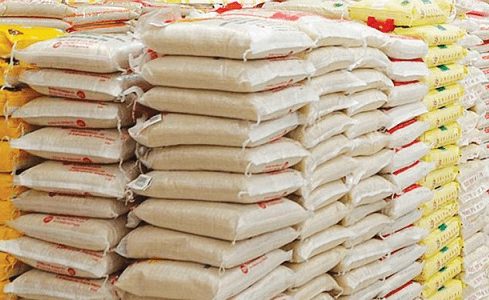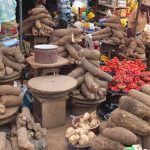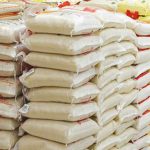The Federal Government is set to expand its subsidized rice program to Lagos, Kano, and Borno states, following the initial launch in Abuja in early September. This initiative aims to alleviate food insecurity by making rice more affordable, as the market price for a 50kg bag has skyrocketed to around N90,000, with some locations seeing prices nearing N100,000.
The subsidized rice program offers 50kg bags of rice for N40,000, a significant relief for many Nigerians grappling with rising food costs. Minister of Agriculture and Food Security, Abubakar Kyari, stated that the program is part of a broader strategy to ensure no Nigerian goes hungry, particularly amid economic challenges exacerbated by inflation and the weakening naira.
An official at the Federal Ministry of Agriculture and Food Security, who spoke on condition of anonymity, confirmed that the sales are set to begin in Lagos and Kano states “any moment from now,” with Borno State to follow shortly after.
Sales in Abuja and Challenges in Coordination
Despite reports of halted sales in the Federal Capital Territory (FCT), the official clarified that the program is still active. “We have not even gone anywhere; how can we stop? The sales are ongoing, and we are actively engaging with other states,” the source explained.
Civil servants in Abuja have already benefited from the sales, particularly around federal ministries. However, the program has faced challenges with coordination at the National Agricultural Insurance Corporation (NAIC) center, where some individuals attempted to circumvent sales protocols.
“There were attempts to sabotage the process by purchasing rice to resell in the market, which frustrates the purpose of the subsidy,” the official noted. Despite these issues, the government remains committed to ensuring that low-income earners, who are the primary beneficiaries, can access the subsidized rice.
30,000 Metric Tonnes of Rice for Distribution
The government has allocated 30,000 metric tonnes of rice for the program, equating to about 1,000 trucks, each carrying 600 bags. This substantial supply is part of ongoing efforts to tackle food scarcity and support vulnerable populations, making essential staples like rice more accessible and affordable for all Nigerians.
Food Inflation and Economic Strain
Nigerians are facing increasing hunger as food prices continue to rise, compounded by the declining value of the naira. According to the National Bureau of Statistics, food inflation in August 2024 stood at 37.52% year-on-year, a significant jump from 29.34% in August 2023. The depreciation of the naira, with FMDQ Securities Exchange Limited reporting a NAFEM closing rate of N1540.78/$ on September 27, 2024, and black market rates exceeding N1700/$, has further worsened purchasing power.
In response to these challenges, Minister of Finance and Coordinating Minister of the Economy, Wale Edun, reiterated the government’s focus on domestic food production. Speaking at a press conference to mark Nigeria’s 64th Independence Day, Edun declared, “We should not be importing food. It is critical that we do not disrupt domestic food production. We mustn’t flood the market with imports,” positioning this shift as central to the government’s economic recovery plan.
The expansion of the subsidized rice program reflects the government’s commitment to addressing food insecurity and supporting the most vulnerable Nigerians during this period of economic strain. As sales roll out in Lagos, Kano, and Borno, many Nigerians will be watching closely, hoping for relief from the soaring cost of living.










